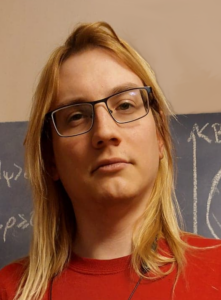Fellow, affiliation:
08/2022-07/2024: Theoretical Quantum Optics Group, Uni Siegen
Robustness and limits of quantum state preparation

Quantum mechanics revolutionized physics in multiple ways. The theory provided a mathematical background to chemistry and microscopic phenomena, helped in understanding evolution of the universe and astronomical objects, and contributed to the rapid growth of technology over the span of the last century. One of the next important implications of the quantum theory are quantum computers, advantage of which lies in direct utilization of the non-classical behavior of their components. Shall a general quantum computing device exist, it would find applications in multiple areas of current research: from theoretical computer science, through modelling of constituents of biological structures, to simulation of quantum systems.
The main focus of this project is to investigate obstacles to achieving quantum computing, in particular the effect of nonideal preparation and operations on quantum systems. The main question can be phrased in the following way: To what extent does the non-ideal preparation harm the result? This question has multiple connections to the problems of quantum information science, quantum metrology, condensed matter physics, and quantum state discrimination. The research planned in projects consists of two main parts: application-oriented exploration of the difficulties of the robustness of state preparation and mathematical characterization of theoretically reachable states.
